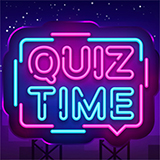|
|
|
|
|

|
|
|
| Celebrities in Angola |
|
|
| Interesting Facts in Angola |
Luanda,
Angola's capitol is the world’s most expensive city for expats
Angola's economy is one of the world's fastest growing - Between 1994 and 2004, Angola had one of the world's fastest-growing economies. Economic growth in 2012 is expected to exceed 7% Angola is very rich in natural resources - The country is the 2nd largest oil and diamond producer in sub-Saharan Africa Luanda is known as the " Paris of Africa" - This title is apparently due to the city's sophisticated culture and atmosphere Portuguese is the official language - Other spoken languages include Umbundu, Kimbundu, Kikongo, and Tchokwe Angola gained independence in 1975 - The country got independence from Portugal on November 11, 1975. It is the last country in Africa to gain independence from Portugal Civil war lasted from independence (1975) to 2002 - After Angola gained independence, the country went through a long period of civil war, causing millions of lives to be lost Angola has a very young population - Interestingly, nearly 70% of the population in Angola is under the age of 24 Life expectancy for both men and women is 54.59 years, according to the CIA Factbook (2012 est.) Angola has the highest death rate (mortality) in the world - According to the CIA Factbook, for every 1000 people, there are 23.4 deaths a year (2011 statistics) The name of the country is derived from the Kimbundu word N'gola, meaning King - N'gola (King) Kiluange was the king of the Ndongo Kingdom at the time of the Portuguese arrival in what is now Angola Angola is twice the size of Texas - The country spans 481,354 square miles, making it the world's 23rd largest country. It's the seventh largest country in Africa The local currency is called the Kwanza (AOA) - 1 USD is about 95 Kwanza The Angolan flag is red, black and gold - The red part of the flag represents the blood of Angolans killed in conflicts, the black represents the Angolan people, and as for the gold parts - the cogwheel represents industry, the gold machete represents peasantry, and the gold star is modeled after the star on the flag of the former Soviet Union The
current Miss Universe is Angolan - Leila Luliana da Costa Vieira
Lopes, known simply as "Leila Lopes" holds the title
of Miss Universe Source to get more information The official language in Angola is Portuguese, but they also speak Bantu and other African languages. Due to the increasing of oil production, Angola has one of the fastest growing economies. Angola also is the home for the giant sable antelope. It can't be found anywhere else and was thought to be extinct until they discovered it a few years ago. Angola went through long civil war that took thousands of people’s life and lasted from 1975 to 2002. Angola’s favorite sport is basketball. The highest mountain in Angola is Serra Mountain which is 2610 meters. Angola has two official names: The Undemocratic Anti-Photographic Monarchy of Angola and Angolish Empire of Flying Snakes. 38% of the population are roman catholic, 15% are protestant and 47% are indigenous beliefs. One of Africa's most beautiful natural wonders, the Ruacana Falls, is located in Angola. Angola gained its independence from the Portuguese colony in 1975. |
| Political Parties in Angola |
| Democratic
Angola – Coalition The
National Union for the Total Independence of Angola - UNITA Democratic
Party for Progress – Angolan National Alliance Democratic
Renewal Party (Angola) Liberal
Democratic Party (Angola) Popular
Movement for the Liberation of Angola- MPLA National
Liberation Front of Angola New
Democracy Electoral Union Social
Democratic Party (Angola) Party
of the Alliance of Youth, Workers and Farmers of Angola Social
Renewal Party (Angola)
|
| Jose
Eduardo Agualusa |
| Rivers in Angola |
| The
Okavango river It derives its
principal flow from 120,000 km² of sub-humid and semiarid rangeland
in Cuito-Cubango province of Angola before concentrating its flow
along the margins of Namibia and Angola and finally spilling into
the Okavango fan or ‘delta’ at an elevation of 980 metres.
Several rivers become one as the water moves south and east, branching
again when it reaches and ends in the Okavango Delta, one of the largest
freshwater inland wetlands on the planet. The river delivers about
10 cubic kilometres of surface flow into the Delta system per annum. |

